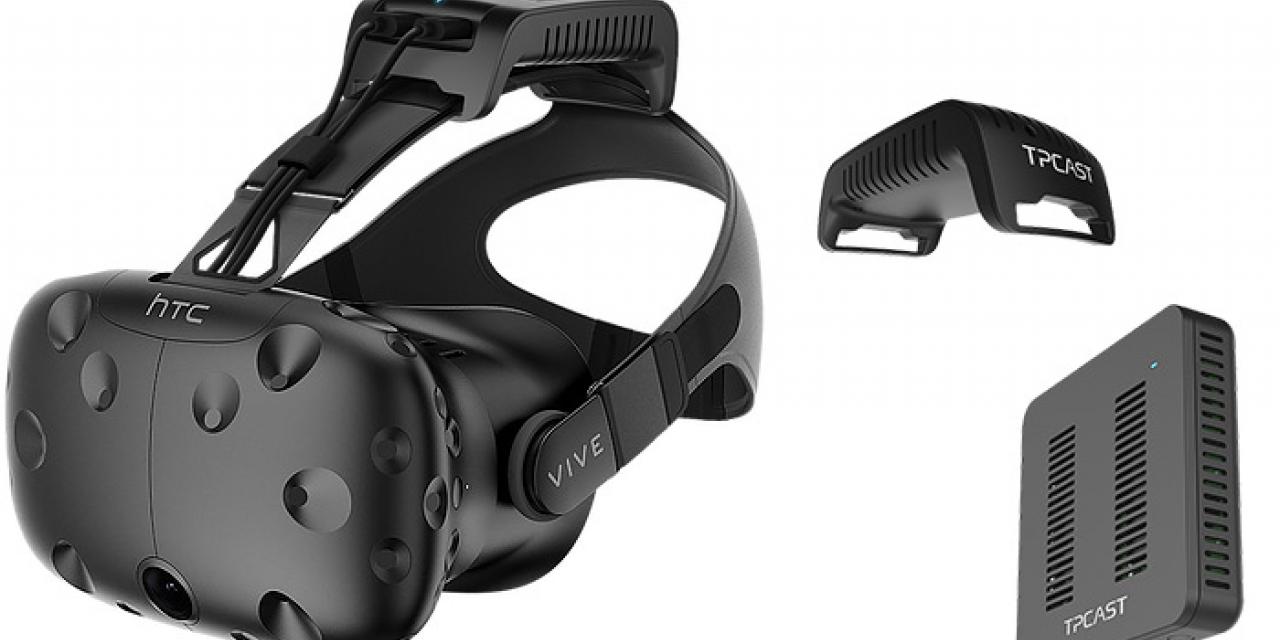
One of the big trends in virtual reality headsets right now is wireless operation. Whether you look to first-party offerings like HTC's Vive Pro with its Intel WiGig-enabled wireless adaptor, or some of the third party alternatives. In that latter camp though, they are ahead of the game, as like when TPCast was first unveiled as the world's first wireless VR solution, the developers have now debuted a brand new version termed TPCast 2.0, that will make it possible for a new crop of 8K resolution headsets to operate wirelessly with a latency as low as 1ms.
Existing TPCast modules have been shipping out for the HTC Vive for only a few months, but the developers have not been sitting on their laurels. TPCast 2.0 leverages a super-low-latency transfer mechanism with a powerful compression algorithm that is said to take the VR data and drop it to a 50th of its real size, before transmitting it wirelessly with zero lag or interference.
"This easy-to-use, stable, and ultra-low latency codec enables TPCast’s product family to deliver consistently high-quality real-time video transmission," the company said, as per
Perhaps even more intriguing about this second version though, is that the developers claim it's low-latency enough to not require specialised wireless networks. While on short-distances it would leverage 802.11ay Wi-Fi signals for maximum bandwidth, over longer distances it can switch to 802.11 ax and in a very bold claim, even utilize 5G data internet for cloud virtual reality.
If that, that is an enormous step to take and could help usher in a whole new era of VR. If you don't need to own the PC to run the high-end simulation, cloud VR could knock down several barriers for entry.








